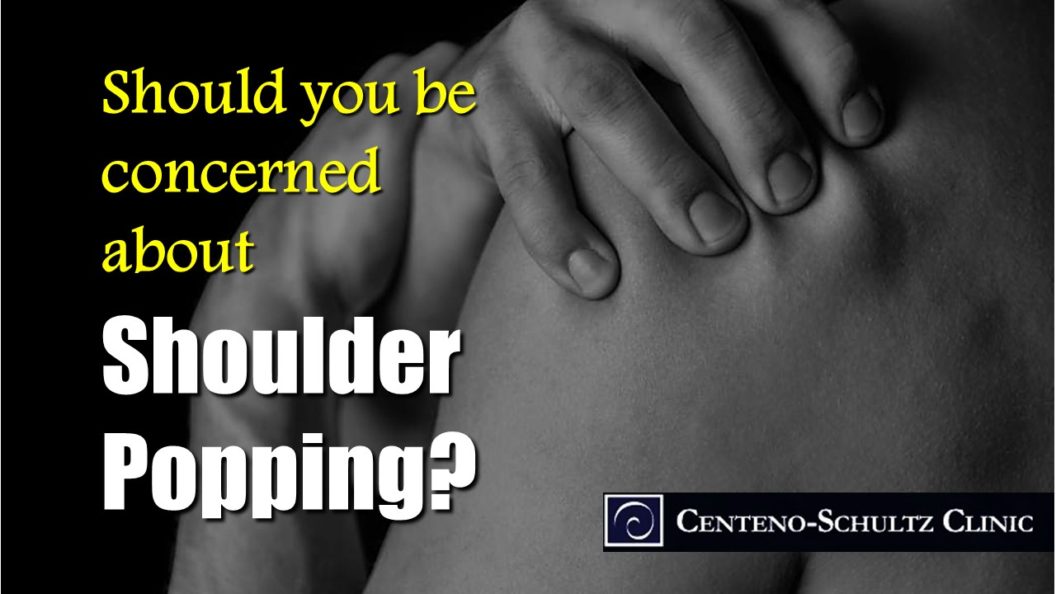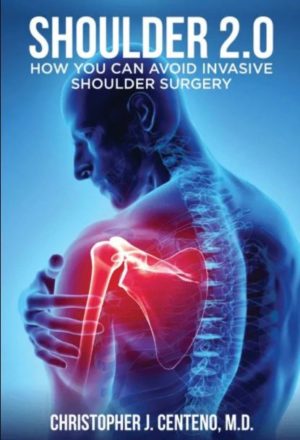Does your shoulder click, pop, or creak, or does it just feel somehow out of whack? If you answered yes, the next question you may ask yourself is, does it hurt or is it disrupting your normal activities? If you answered no, like most people, you probably aren’t too concerned. What harm could it be doing? If there’s no pain, many will just hope it goes away in time, and time comes and goes until eventually you just end up ignoring it…until it gets worse.
The truth is, no pain doesn’t equate to no problem. While those pops and clicks really could be nothing, they also could be early warning signs that something big is brewing. And that something big could be shoulder arthritis. Is there a way to determine the difference, and if it is a bigger issue in the works, is there anything that can be done to stop it?
Let’s take a quick look at the shoulder, and then we’ll explain more about how to know if that shoulder popping is an early sign of shoulder arthritis as we continue with our arthritis series for National Arthritis Month.
The Shoulder and Instability
The shoulder is a very complex joint in which the “ball,” the head of the humerus (the upper-arm bone), fits into the “socket,” or the glenoid, which is a very shallow depression in the scapula, or shoulder blade. The shoulder is held in place by many tight bands of ligaments, which keep the shoulder stable and provide precise and controlled movements. Ligaments connect bone to bone, and in the shoulder, we have, for example, the acromioclavicular ligament that connects the acromion bone to the clavicle bone at the top of the shoulder. Another example is the coracohumeral ligament, which connects the coracoid process on the shoulder blade to the humerus.
Ligaments can become loose when they are overstretched. Loose ligaments can destabilize the joint and cause the shoulder to move too much. This excessive movement is called shoulder instability. You may not experience any pain with shoulder instability; in fact your only symptom could be shoulder popping.
So what can cause shoulder instability? Shoulder dislocation from trauma, degeneration as you age, wear and tear, and much more. Ligament injuries can create problems in the entire shoulder, and if ignored, they can lead progress to more serious issues, such as shoulder labral tears and shoulder arthritis. And while you may or may not have pain with the shoulder instability itself, if left unaddressed, shoulder pain will likely set in at some point.
How Can I Tell Which Type of Shoulder Popping I Have?
How can you tell which type of shoulder popping you have? The it’s-no-big-deal shoulder popping, or the arthritis-is-inevitable shoulder popping? Have you ever had a shoulder injury? A shoulder “separation”? A dislocation? A shoulder injury due to a car accident or sports impact? Has your shoulder ever popped out of its socket? Have you had any shoulder accident that cause a great deal of pain that eventually went away, and since it never returned you assumed it healed? Think way back, all the way back to childhood if you have to. If you’ve experienced a shoulder injury at some point in your history, you definitely don’t want to ignore your current shoulder popping as it could definitely be shoulder instability. If you’ve never had a shoulder injury, most likely your shoulder popping is nothing big, but it couldn’t hurt to have it checked if the problem persists.
Learn more about shoulder popping and instability by watching Dr. Centeno’s brief video below:
Don’t Wait for the Pain Before You Do Something About Your Shoulder Instability
By the time you begin to have shoulder pain, early arthritis (or some other big shoulder issue) may have already developed. Surgery, unfortunately, is the most common solution in traditional medicine to stabilizing shoulder instability. This shoulder surgery is invasive and the recovery time is long. An interventional orthopedic doctor, on the other hand, can tighten up those loose shoulder ligaments without surgery by precisely injecting them with your own concentrated platelets and can inject other orthobiologic therapies to address the shoulder pain if arthritis has already begun to set in.
If your shoulder is popping and you have had an injury in the past, getting your shoulder instability treated early, before pain and arthritis become an issue, is the key to being proactive and maintaining a healthy shoulder joint.

